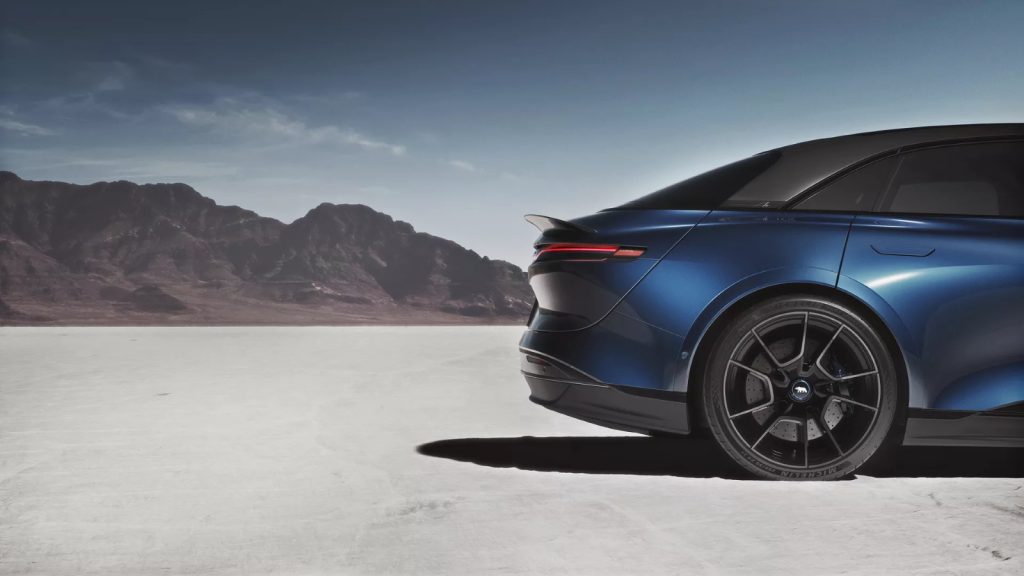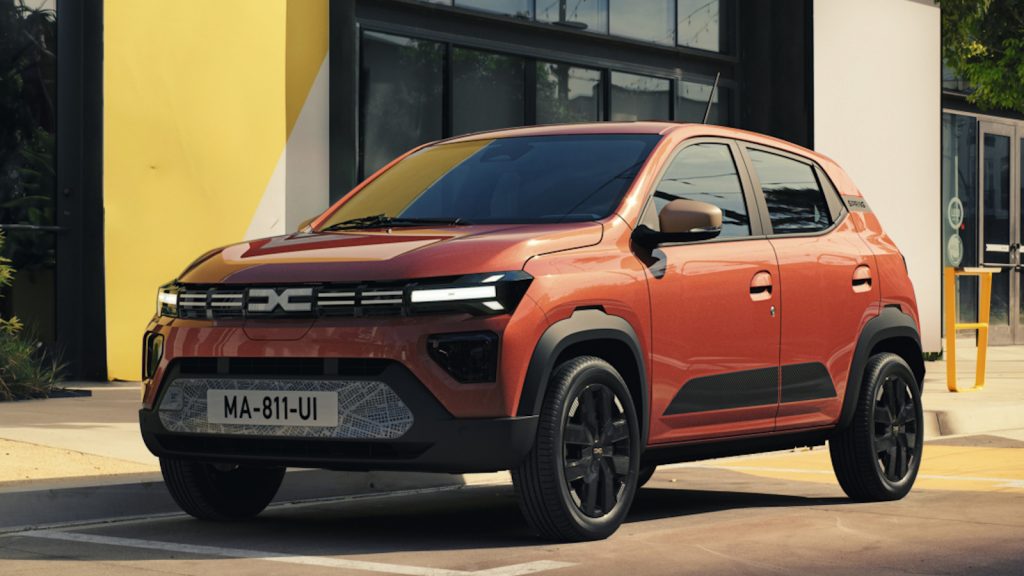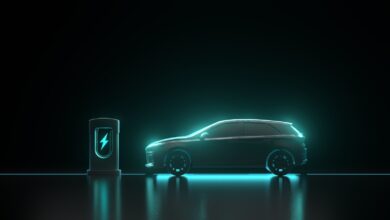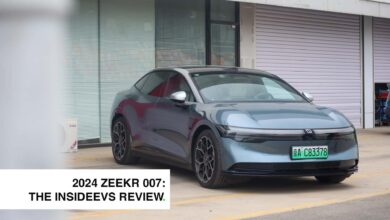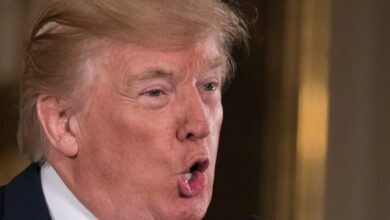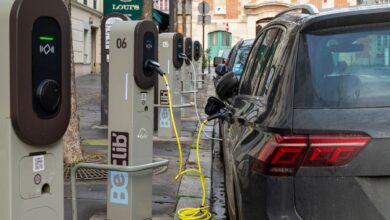The Big Reason Why No EV Startup Can Mimic Tesla’s Growth
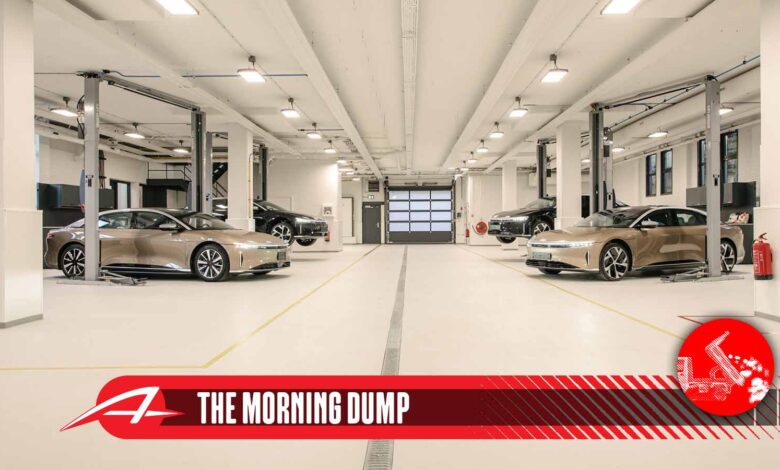
EV startup Lucid Motors is going to report its quarterly earnings this evening and the suspicion is the company will continue to lose money. A lot of money. Is there something wrong with the cars? Nope. The cars are great. So what’s the deal? Let’s get into that because there’s a limiting factor that impacts Lucid and anyone else trying to sell EVs in the United States.
It’s going to be an all-electric edition of The Morning Dump and I’m on the mother-of-all electric vehicles: a Siemens ACS-64. It’s a train! I’m headed up to Boston this morning to support one of my oldest friends, whose son is about to undergo a seven-hour brain surgery to remove a tumor lodged in there. This is a scary prospect, but the surgery should help improve the little guy’s quality of life a bunch. Inasmuch as it’s a thing you do, please keep the family in your thoughts and prayers today.
![]()
What will I be doing today on a practical level? I don’t know, but I can certainly talk for seven hours if that’s helpful. As a warmup, let’s talk some more about electric cars.
Unlike Lucid, GM is on track to make profitable electric cars by the end of the year, and a key reason is the start of cell production at one of its battery plants in Tennessee. While GM is moving in the right direction, the transition to an EV future in the United States isn’t going to be an easy one, and Vice President Kamala Harris is going to be in Detroit today to announce $100 million to help car companies and suppliers make that transition. This makes a lot of sense practically, and even more sense politically.
Finally, politics will be fully on display in France as the leaders of China and France meet this week. One of the topics of conversation? EVs!
The EV Startup Conundrum
I thought the Lucid Air was a great electric car when I drove it, in spite of some small software issues that seem to plague pretty much all super-modern cars. The biggest issue, though, was the price. At the time a Lucid Air Grand Touring started at around $139,000. The cost has since been dropped to $109,000 for the GT, but it still offers 514 miles of Tesla-beating range on the EPA test cycle.
If you’re going to get an electric luxury sedan it’s hard to argue for any other car currently on the market. The base Lucid Air Pure still looks like a dream and, at $69,900 (before taxes and delivery) its 400+ miles of range make it a better deal than the Model S. [Ed Note: There is the Tesla’s Supercharger advantage, of course. -DT].
The good news for Lucid is that sales in the first quarter were up by 40% year-over-year to almost 2,000 vehicles, which shows that the price drop is working. While it’s working to move some Airs, the company is still wildly unprofitable, and a price reduction when you’re losing money isn’t a long-term strategy.
In 2022, the company lost $1.3 billion. Last calendar year, the company lost $2.8 billion. If you’re not great at math, those numbers are going in the wrong direction. Lucid is, of course, an American company making EVs in America. The not-so-big secret is that the company is being heavily backstopped by Saudi Arabia, presumably as a hedge against a future drop in demand for oil. But even the Saudis can’t pump money into Lucid forever, right?
Many of these companies are following in the footsteps of Tesla and making, arguably, better vehicles than Tesla currently is. I haven’t driven a Gravity yet, but the company’s first SUV looks a lot better than the Model X.
So why can’t they succeed where Tesla has?
There’s a great line in this Automotive News piece on Lucid’s financials that sums up the problem:
Parkev Tatevosian, an investment writer at The Motley Fool, said Lucid and other EV startups face a difficult task because they need to scale up production and grow sales but there aren’t enough buyers to do so.
“These companies are in a position where they need to increase supply in order to become profitable but at the same time the [EV] industry is already oversupplied compared to where customer demand is,” Tatevosian said in a video. Unlike its legacy rivals, Lucid can’t shift sales to gasoline or hybrid models as EVs wane.
That is exactly correct. Both Lucid and Fisker launched into already oversaturated markets. There’s definitely a large portion of the market that wants electric cars, but most of them already have electric cars. Even worse, most of those cars are Teslas, and because of its status as an early adopter the brand loyalty for Tesla is the highest in the industry.
Tesla benefitted from government loans, carbon offset tax credits that funneled money from traditional automakers into Tesla’s pockets, and a huge first-mover advantage. It didn’t hurt that the products were better than anything else modern carmakers had even imagined.
While the Model S was expensive when it launched, the only real competition was the Nissan Leaf, which lacked the performance and, more importantly, the style. Tesla was able to therefore grow rapidly and funnel that money into more models and more production.
This worked for Tesla but it hasn’t quite worked for any other EV startup in the United States and Europe. Of the automakers not affiliated with a larger car company (like Polestar), the most successful new entrant is probably Rivian, which still loses billions of dollars, but at least was smart enough to build a truck/SUV combo to find some grey space in the market. Almost everyone else, including the major automakers, rushed to two-row crossovers, thus overstuffing that market far beyond demand.
To reach the next tranche of buyers, companies will have to not just offer more model types, they’ll have to offer significantly cheaper cars. But, yet again, this means automakers will need to dramatically increase the efficiency of production, which requires more sales, which requires cheaper cars, which requires more investment, which requires more sales, which requires cheaper cars… ad infinitum.
Again, from the Automotive News piece linked above:
“This is not sustainable,” Tatevosian said. “I understand Lucid has enthusiastic investors that are willing to give the company money and invest in the company. But that is not unlimited. They can’t continue giving money to Lucid to burn.”
I don’t know. Maybe they can? Stranger things have happened.
How GM Is Going To Get Profitable
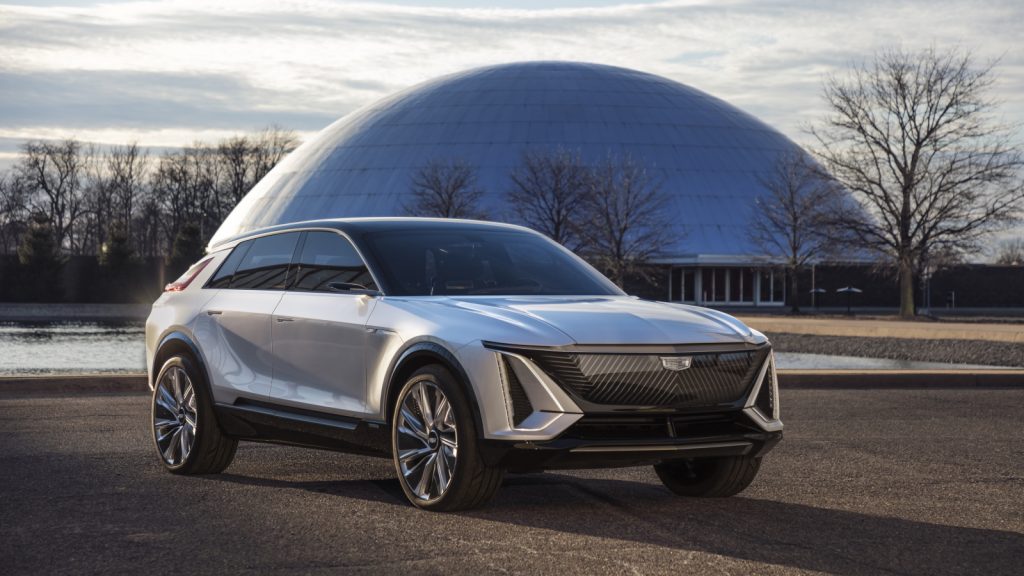
Do you know what big car companies can do that EV startups cannot? Make gas-powered cars. Almost every major automaker in the world is profitable to some degree and, likely, were extremely profitable during the pandemic. This makes the investments in electric car production a lot easier.
There’s an argument to be made that, because of carbon offsets, Tesla itself was funded in large part by the sale of gasoline-powered cars. This continues today, with Tesla earning about $1.79 billion from offsets in 2023.
General Motors has focused on building efficient and profitable electric cars and the big key to this is production of its Ultium battery packs. Thus far the packs, made by an affiliated company co-owned with LG, were only built in Ohio. The opening of a plant in Spring Hill, Tennessee should get GM a lot closer to net profitably.
Ultium in Warren, Ohio, has been making battery cells for GM since August 2022, supplying them to various GM EV plants in North America. The Ohio plant is the road map to help subsequent Ultium factories ramp up production faster, GM CFO Paul Jacobson said during the automaker’s first-quarter earnings call with Wall Street.
GM leaders and analysts say bringing the new Ultium Spring Hill factory online is critical if GM is to meet its promises: to produce 200,000 to 300,000 EVs this year and make money on them by the second half.
“We ramped our first battery joint venture plant last year, and as they increased production and made other efficiencies, the cost of cells came down significantly,” Jacobson said. “And cell plant No. 2, in Tennessee, is ramping even faster based on the learnings from plant one and is expected to reach full installed capacity by the end of the year.”
According to GM, the Cadillac Lyriq (also made in Spring Hill) now costs $12,000 less to make than it did a year ago. A third plant set to open later this year should help even more.
$100 Million For Suppliers To Transition To Supporting Electric Cars
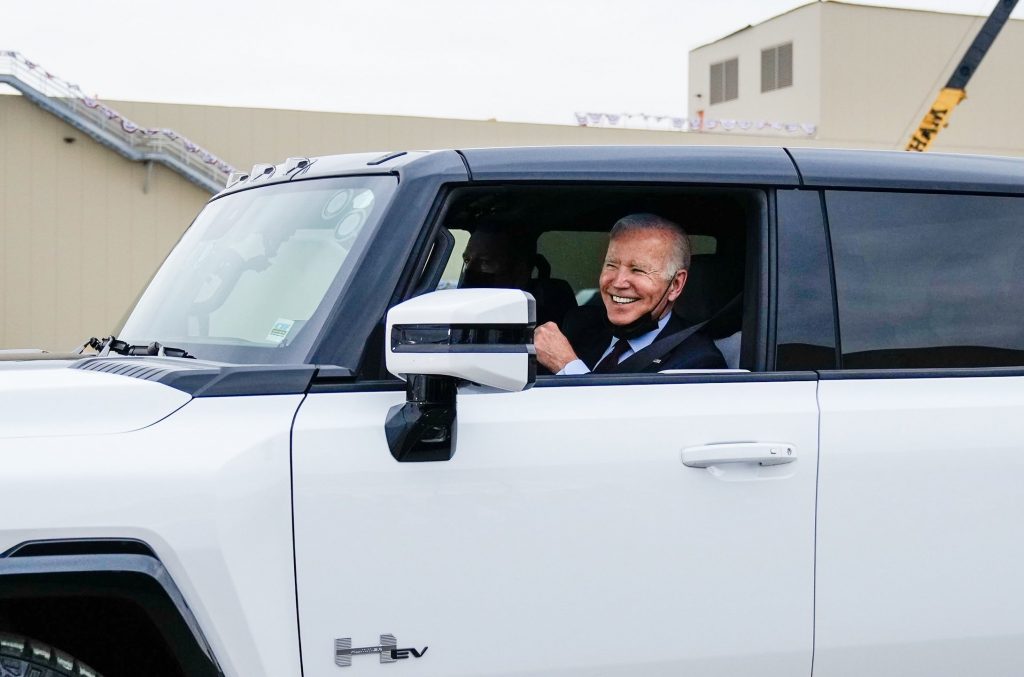
If you’re a tire supplier for automakers there are new things to be learned in the transition to electric cars but, presumably, these vehicles will need tires made approximately the same way tires were always made. Even better, EVs currently need more tires than their gas-powered counterparts on a lifetime basis.
But what if you make oil filters? Or alternators? Or any of the greasy bits that make an internal combustion engine run? The transition to making electric cars might be a little harder.
In order to help, Vice President Kamala Harris is going to be in Detroit today to announce $100 million in federal money to help this transition. From her office:
More than $100 million in funding for small- and medium-sized auto parts manufacturers to expand or retool manufacturing facilities:
The Department of Energy will set aside $50 million of its Automotive Conversion Grants Program for partnerships with states to help small- and medium-sized suppliers convert from manufacturing internal combustion engine parts to manufacturing parts for the EV supply chain. This funding will maintain the Domestic Conversion Grant’s same focus on supporting retooling to keep good, good-paying and union jobs in the same communities as automakers and auto suppliers transition to electric vehicle manufacturing here in America. The Department of Energy recently requested public input on the design of these state-federal partnerships in order to best support small- and medium-sized manufacturers in the auto supply chain.
The Department of Energy is setting aside up to $50 million of its Industrial Assessments Center Implementation Grants Program to help auto suppliers kickstart manufacturing diversification and conversion projects. Specifically, this program, which was funded by President Biden’s Bipartisan Infrastructure Law and is covered under the President’s Justice40 Initiative, provides grants of up to $300,000 to entities that have received an Industrial Assessment Center assessment to improve their facilities’ energy and material efficiency, cybersecurity, or productivity, or reduce the greenhouse gas emissions.
Here is the non-cynical spin on this: Global climate change is real. Automakers are not quite being forced to build EVs, and no one is being made to buy them yet, but there’s a lot of heavy cajoling going on and it’s silly to pretend there isn’t.
I visited the bucolic home of Theodore Roosevelt on Long Island this weekend. It’s a national historic site and they therefore have a Junior Ranger program that involves kids answering a series of questions about the place and getting a sweet badge afterward.
Teddy famously loved to quote the West African proverb “Speak softly and carry a big stick.” When asked to put this in her own weird “by the Junior Ranger booklet,” my daughter even more succinctly explained that this meant: “If they say no, whack ’em!”
There’s a little bit of that in our industrial policy towards EVs, so helping these suppliers make the transition seems wise. This was pointed out in a post this morning from The Detroit News:
Jonathan Smith, a senior deputy at Michigan’s Department of Labor and Economic Opportunity, applauded the Biden administration’s work to prepare the state’s workforce for the mounting EV transition.
“We’ve always sort of been in this position where we’re just scrambling to respond,” he told The Detroit News, referencing previous challenges for the auto industry, namely the 2008 financial crisis.
“This really feels like one of the first opportunities we’ve had to really get out ahead of a problem in a while.”
Foresight! From Government! What’ll they think of next?
That’s the non-cynical take. The cynical take is that Michigan is probably the most important state in this year’s upcoming election, which is why President Biden, VP Harris, and all manner of other administration figures keep ending up there. It’s why both Biden and former President Trump have both been sucking up to auto workers.
If the automotive industry were based in a less competitive state like New York or Texas would taxpayers be spending so much to save these jobs? Maybe!
What Kind Of Bargains Can France Make On EVs?
All politics is local, except when it’s global. All politics is local and global. And regional. And sometimes national. All politics is all geographies simultaneously.
And that’s good! Politics might get rough, but the idea is that we can establish a set of rules, laws, and mores that help us decide things without doing what we used to do, which was just kill everyone who disagreed with us and take their stuff. Humanity has mostly moved on from this stage.
France is one of the more open-minded places when it comes to environmentalism, largely because even the more mainstream conservative parties there believe in climate change. But France is also highly protective of its car industry.
At first, France welcomed Chinese-built electric cars and even helped subsidize them, which meant a flood of Dacia Springs, Tesla Model 3s, and MG MG4s built in the Asian nation. In addition to concerns over Chinese subsidies and unethical labor practices, France didn’t want anything bad to happen to its own car industry so it changed the rules for its EV subsidies to include production/shipping, which led to a dramatic drop in the appeal of those cars.
All of this is going to come up this week when Chinese President Xi Jinping meets with France’s President Emmanuel Macron. Xi needs Europe to be favorable to Chinese cars in order to help the country deal with its overcapacity problem, whereas Macron wants China’s help in ending the war in Ukraine (to Macron’s credit, he’s been a huge supporter of Ukraine). Macron also wants to talk about Cognac.
Paris is the first stop on Xi’s European trip, seeking to rebuild relations at a time of global tensions. After France on Monday and Tuesday, he will head to Serbia and Hungary.
France hopes the discussions will help convince China to use its leverage with Moscow to ‘’contribute to a resolution of the conflict” in Ukraine, according to a French presidential official. Russian President Vladimir Putin recently announced plans to visit China this month.
Macron will press Xi over supplies from Chinese companies supporting the Russian war effort despite EU sanctions, he said. China claims neutrality in the Ukraine conflict. France also wants China to maintain a dialogue with Kyiv, added the official, who was not authorized to be identified according to presidential policy.
Last year, Macron appealed to Xi to “bring Russia to its senses,” but the call was not followed by any apparent action by Beijing.
I’ll keep an eye on it this week and see what kind of movement we get from either side.
What I’m Listening To While On This Train To Boston
Hell yeah, Dropkick Murphys! Nick mentioned this song in the Discord and it was the perfect accompaniment to the trip. I know the song well, but I’d never actually seen the video, which includes two key rarities: menacing accordion play and a Grand Marquis cop car… What in the name of Raylan Givens is that all about?
The Big Question
Is there room for another EV startup or is this the end?
